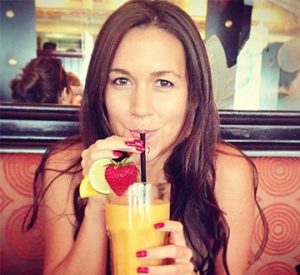Probiotics always seem to be a topic of interest among health-conscious individuals.
Most of us have at least heard of probiotics, and maybe we have even tried a few products containing them when we have gotten some type of cold or other sickness (because that’s what your neighbor told you to do, or your friend’s friend has suggested it, or because you googled probiotic and the first website you read claimed probiotics are the ‘real-deal’). But I often wonder if we really understand what a probiotic is. What’s the difference between prebiotics and probiotics? And should we really trust either one? I’ve learned about these two forms of bacteria in some of my classes, I’ve done some information gathering, and I hope to clear some things up.
First things first. Let’s talk bacteria. Our gastrointestinal tract is made up of hundreds of different species of “good” bacteria, also known as our body’s microflora. This bacteria helps our body metabolize nutrients, vitamins, drugs, hormones, and carcinogens; fight against intruders; prevents pathogens from colonizing; protects us against allergies and immune disorders; and regulates our immune system (1,2). These functions of the gut flora help our body’s to function properly and prevent disease-causing bacteria (AKA the “bad” bacteria) from taking hold. Our diet and lifestyle affects the types of bacteria that live in our gut. A healthy, nutrient-dense diet helps promote the growth of the good bacteria; an unhealthy diet consisting of refined sugar and animal fat, low fiber, and antibiotic use promotes the bad bacteria. This is where probiotics and prebiotics come into play. People frequently believe their diet can be “fixed” with supplementation, including probiotics.
I find that the definition of probiotics is often confusing, but Dr. Joel Fuhrman explains it best:
“The term probiotics is used both for the beneficial bacteria that are native to our intestinal tract and for supplemental live bacterial organisms that are thought to be beneficial when ingested. However, the (limited) bacteria in supplemental probiotics and fermented foods are not the same as the indigenous bacterial flora that live in the gut. Supplemental probiotics serve a beneficial role–but mostly when the normal native bacteria have been harmed or removed with antibiotic use or perverted with a diet of sweets and processed foods (1).”
He goes on to explain that it can take months to reestablish the good microflora and that a healthy diet needs to be maintained in order to do so. Probiotic bacteria that come from supplements drop within days when supplementation stops. This begins to explain why a healthy diet is the most important factor in promoting the right type of bacteria in our gut–not occasional probiotic supplementation.
There are many studies that have been done regarding probiotics, but the evidence is mixed when it comes to its effectiveness (1). For this reason more research needs to be done before we can proclaim that probiotics are the real deal. That being said, there are a few conditions that have been shown to benefit most from probiotics, including antibiotic associated diarrhea and irritable bowel syndrome (2). For more information regarding probiotics, check out Dr. Fuhrman’s article: What are probiotics?).
So, why is a healthy diet the most important factor in promoting the good bacteria? The good bacteria (and even probiotics themselves), feed off of non-digestible carbohydrate sources, resistant starch and fibers coming from vegetables, fruit, and legumes. These types of food act as prebiotics, which support the growth and activity of the good bacteria. They are found in foods like onions, garlic, asparagus, leeks, artichokes, oats, and bananas (2,3). It is not necessary to eat fermented foods such as yogurt and kefir to have beneficial bacteria in the digestive tract (1). A whole-food diet rich in fruits, vegetables, and legumes (AKA a high fiber, resistant starch and carbohydrate diet consisting of natural prebiotics) will provide enough of the favorable bacteria in our gut to keep us healthy and functioning at our best.
Probiotics may be helpful for some people under certain conditions, but I hope more research is completed in the future so we can determine their safety and effectiveness. As of right now, the evidence regarding the benefits of prebiotics from whole, plant-based foods like fruits and vegetables is our best bet when we want to keep our good bacteria in check. When you’re feeling sick, think about how your diet has been over the last few months or even the last few weeks. Are you fueling your microflora with healthy foods (prebiotics), or are you encouraging the growth of the “bad” bacteria?
This photo comes from PCRM.org:
This is a really good video video from nutritionfacts.org regarding probiotics and prebiotics.
- Furhman, Joel. Super Immunity: The Essential Nutrition Guide for Boosting Your Body’s Defenses to Live Longer, Stronger, and Disease Free. Harper One. 2012. pp. 89; 151-153. Print.
- “Fiber and Prebiotics: Mechanisms and Health Benefits.” MDPI. Web.: https://www.pcrm.org/media/online/sept2014/seven-foods-to-supercharge-your-gut-bacteria
- “Fiber and Prebiotics: Mechanisms and Health Benefits.” MDPI. Web.: https://www.drfuhrman.com/library/probiotics.aspx#_ENREF_1
- “Fiber and Prebiotics: Mechanisms and Health Benefits.” MDPI. Web.




